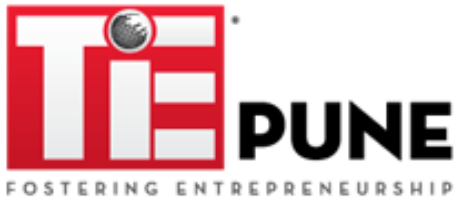
EDITION 12
Friday
July 30, 2021
Sizing Up The Market
It’s possibly the most important task for an entrepreneur – gauging the market size well before he even starts. And you can then choose to wade into a blue ocean where the market is untapped with little or no competition, or, dive into a red ocean that shrinks your market size with the presence of existing competition. InSync speaks to some members to find out how they gauged the market size for their product or service.
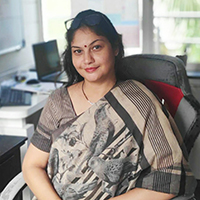
Rama Sane
For Rama Sane, who set up Niramay Aging In Place, the task was not exactly rocket science. “Since I am a certified Aging In Place professional and my husband Vijay a city planner, we have been associated with several issues that provide data. As urban planners we have the demographic details of some cities, we sourced the Census as well as data with different Urban Local Bodies.”
Besides the fact that the data was available, Vijay also worked for a couple of years with senior citizens, tying up with various NGOs in the field, conducting surveys to get a clear understanding of what is required by the elderly. “We surveyed about 100 seniors in Pune, Mumbai and Bangalore. For Pune, for example, about 10% of the population is elderly. If we take in account the city and its surrounding areas, the number is 70 lakhs and 7 lakhs will be seniors.”
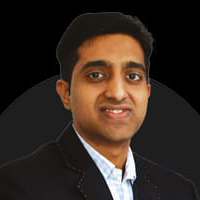
Anupam Kulkarni
Sometimes understanding your customer can lead you to an estimate of the market. For Anupam Kulkarni, co-founder of iauro Systems Pvt Ltd, there was no ready-made data available. Says he, “we provide companies with innovative digital solutions that can accelerate their growth, reduce costs and more.” So how would one know how big is the market for future technologies?
Says Anupam, “there are the usual Gartner, Forrestor studies that predict what to expect, but to extrapolate that info to the Indian companies? So, we decided that we needed to create a Customer Persona. Who is the kind of person who will use technologies of the future? Why? What would he be interested in? Creating this persona led us to people in their 50s who are in charge of transformation in tech companies, who often find problems in their companies and are on the lookout for tech solutions.”
This led iauro to identify three people in 2019. “We reached out to these three and had another learning. If the customer is not willing to pay for it then you are wrong.” Luckily for Anupam they were, and those initial three customers grew to 18 strategic customers and 40 non-strategic customers today. “And we have a million reviews too” says Anupam happily.
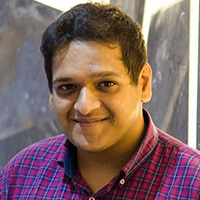
Abhiraj Kulkarni
While future technologies are intangible, land and offices are as solid as they get. Says Abhiraj Kulkarni, founder of Boot Co-Work says, “while you know the supply is x you have to gauge the demand.” Whilst employed, he was well aware of the difficulties start-ups and even subsidiaries of large companies faced to find an office space and all that it needs. “In those days (2017) co-working spaces was a new idea. And I saw the opportunity it had in helping start-ups and even others find space.
“To gauge the market size, we simply collected the data on new companies getting incorporated. In those days we saw that there were 50 new companies getting incorporated every week in Maharashtra. We targeted 20% of that, given our wherewithal. Today we have 13 co-working spaces in Pune and seven in Bangalore.”
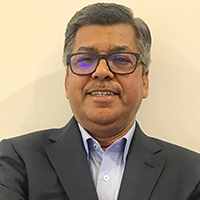
Ravi Nigam
While the first step is to gauge the entire market size, the next is to get a clear understanding of how much of that you can service. As Ravi Nigam, TiE Pune President and mentor, had said earlier, “entrepreneurs need to understand that even though the market size for say biscuits is x, do you have the ability to manufacture that large a number? Do you have the technology, the machines, human resources, the supply chains and most importantly funds to meet such a demand? Market size has always to be understood with your own capability.”
So, though the market size of senior citizens in Pune is approximately seven lakhs, Vijay understands very clearly how big a slice he can hope to bite. “Given our abilities, I would say just one percent is really good. Though when we started, we got about 20 customers in the first four months, but because of Covid we had to stop, temporarily.”
Whether there is data to help you gauge the market or you draw out a customer persona and work with that, there’s no avoiding this task, which is the first step for any entrepreneur.
Why do people choose to become entrepreneurs?
Entrepreneurship. A choice that is full of risks, the unknown, challenges and can make all your calculations go awry. So, what is it about this business that attracts, and if you see the trends, pulls more and more people into their fold? Is it the possibility of making plenty of money, a passion or a desire to do something that is of value? We speak to a few of our members to find out why they chose entrepreneurship over employment?
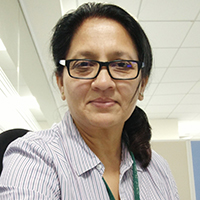
Mrudul Palvankar
Mrudul Palvankar, founder, Cnatives P Ltd
I am passionate about technology and have been in the industry since the last 20 years. I saw around me that many techies lacked knowledge of designing cloud native applications. People think they understand it and create apps on cloud, but most of them do not have a clue of the design principles that then impacts maintenance and therefore costs more money. So, I decided that I must do something to change this, which is why I have built three tools (native doc, native courier and native builder) that developers can use which will increase their productivity. Making cloud native easy was my primary reason to become an entrepreneur. Money will happen along the way.

Shubham More
Shubham More, co-founder, Udayan Ecotech P Ltd
My co-founder Saurabh Pachpande and I are trained mechanical and electronic engineers and were holding regular jobs. But as we both are auto enthusiasts and saw that the technology as it exists now is not capable of optimal functions required. So, we worked on building systems that would improve the performance of the mobility platforms for electric vehicles (EVs). The current existing ones are monolithic applications, we are working on making micro services and open APIs for EVs which we are sure will make things better than what exists today.
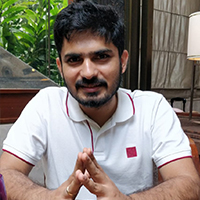
Nimish Kothari
Nimish Kothari, Founder, AproposDrive Technologies
I started AproposDrive to provide efficient motor technology for EVs and consumer appliances. We have made first of its kind magnet-less motor drive for ceiling fan which saves more than 50% energy. We also design and develop electric motors and controllers for two-wheelers. We do things differently that give better results! As an entrepreneur I wish to make the world greener.

Kushal Shah
Kushal Shah, CEO, Garsieve Food Works
Years after working with major MNCs, I was faced with a choice. Of continuing my father’s business, or my job. My father had started a small business manufacturing Mexican food which was primarily B2B selling wholesale to restaurants and other businesses. I could have shut it down as my dad had passed away, but I felt that I should do more with it. I should be able to build something that was sustainable and could continue even after we are gone. Of course, it meant that I had to give up a well paying job and get mired in the web of running a business but I chose that. Despite the ups and downs of business, I wanted to deal with those challenges, wanted to build something that would be of value to the employees, to the customers, to build an ethical ecosystem that would be beneficial to society. We make Mexican foods that are free from any preservative and that was a big plus. After four years we have expanded into a known brand, got a bigger unit, automated many functions and the growth machine is chugging, happily. Yes, I have done good.
Contact us if you have a story to tell: rashmi.ghosh@tiepune.org
